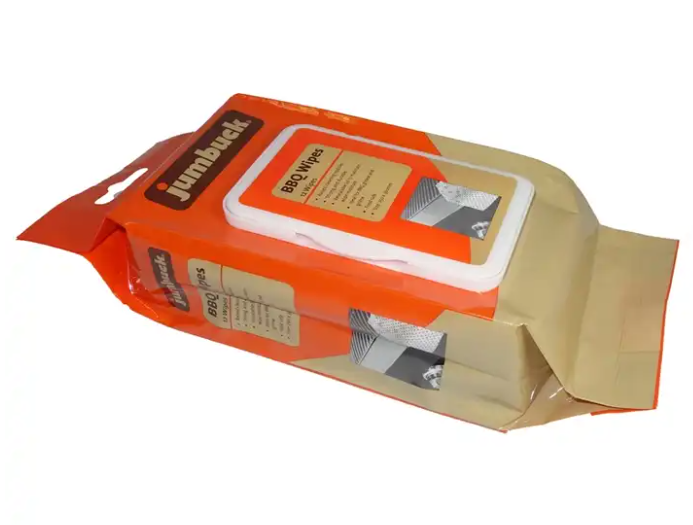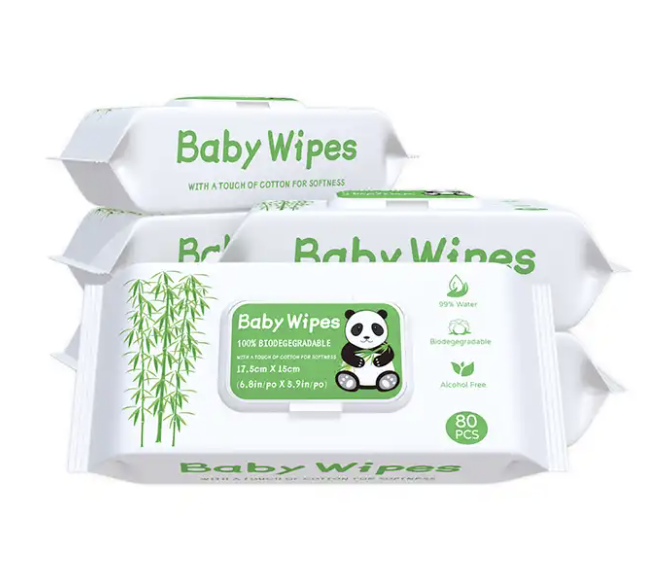In our fast-paced world, maintaining a clean and sanitized home has become essential. Among household essentials, kitchen wipes and wet wipes have emerged as convenient tools for keeping spaces spotless. However, understanding the difference between these two types of wipes is crucial for maximizing their cleaning benefits. This article by Zhiyue Biotechnology explores the distinctions between kitchen wipes and wet wipes, their optimal uses, and how they contribute to household hygiene.
Comparing Peer Products: Kitchen Wipes vs. Wet Wipes
Kitchen wipes and wet wipes are often confused due to their similar appearances, but their applications and ingredients vary significantly. Kitchen wipes, designed specifically for cleaning kitchen surfaces, are more potent in tackling grease, oils, and food residues. Typically, these wipes contain antibacterial agents, degreasers, and food-safe chemicals to ensure that surfaces stay clean and free of harmful bacteria while not posing risks to food safety.
On the other hand, wet wipes are versatile and primarily intended for hand and face cleaning, though they also have a variety of applications in the household. Wet wipes are milder and contain fewer heavy-duty cleaning agents. While they do offer some antibacterial properties, wet wipes are not as effective in degreasing or sanitizing surfaces where food is prepared. Instead, they are ideal for quick clean-ups, gentle skin care, or freshening up surfaces that don’t require deep cleaning.
Understanding the core differences between kitchen and wet wipes allows consumers to choose products that enhance cleanliness without compromising safety. Zhiyue Biotechnology’s commitment to innovative and effective cleaning products makes it easier for consumers to select wipes tailored for specific tasks, ensuring a more efficient and sanitary home.

Key Points of Comparison Between Kitchen Wipes and Wet Wipes
- Ingredients and Potency
Kitchen wipes contain more robust antibacterial agents and grease-dissolving components, making them suitable for food-preparation areas. Wet wipes, being gentler, use ingredients safe for skin contact and are generally free of harsh chemicals. - Usage Focus
Kitchen wipes are specialized for countertops, stovetops, and food-contact surfaces, whereas wet wipes are multi-purpose, ideal for quick clean-ups, freshening up, and personal hygiene. - Durability and Strength
Kitchen wipes tend to be more durable and textured to scrub away food residues effectively. Wet wipes are softer, designed for gentle use on skin. - Residue and Safety
Kitchen wipes often contain non-toxic, food-safe chemicals that leave minimal residue, ensuring they don’t contaminate surfaces. Wet wipes, however, may leave a slight film that’s better suited for skin rather than surfaces where food is prepared.
Zhiyue Biotechnology’s kitchen and wet wipe products are designed with careful attention to these distinctions, ensuring that each product is tailored for its intended purpose.
Industry Trends and Technological Advances
The demand for specialized wipes has surged, driven by consumer awareness around hygiene, the ease of single-use products, and the desire for targeted cleaning solutions. The household wipes industry has responded with products that cater to specific cleaning needs, minimizing cross-contamination risks and enhancing user convenience.
Biodegradable and Eco-Friendly Options
Environmental considerations are reshaping the wipes industry, with biodegradable and compostable materials becoming more prevalent. Zhiyue Biotechnology has embraced this trend by developing wipes that minimize environmental impact without compromising on quality or effectiveness.
Enhanced Antibacterial Formulations
Since the onset of the COVID-19 pandemic, the global household cleaning industry has accelerated research into advanced antibacterial and antiviral formulations. Many companies, including Zhiyue Biotechnology, are investing in research and development to enhance the effectiveness of wipes, ensuring they kill a broader spectrum of pathogens while remaining safe for household use.
Smart Wipes and Allergen Control
Another rising trend is the development of “smart wipes” — wipes designed for allergy-sensitive users. These wipes are infused with hypoallergenic ingredients that prevent common irritants from lingering on surfaces, catering to the growing demand from consumers with allergies or sensitivities.

Conclusion: Choosing the Right Wipes for a Cleaner Home
Kitchen wipes and wet wipes serve different purposes, and understanding these distinctions allows consumers to create a more efficient cleaning routine. Zhiyue Biotechnology’s focus on product innovation and hygiene solutions helps ensure households stay safe and clean with products tailored to specific needs. As the industry evolves, we look forward to offering new, eco-friendly, and highly effective options that make home cleaning not only simpler but also safer and more sustainable.